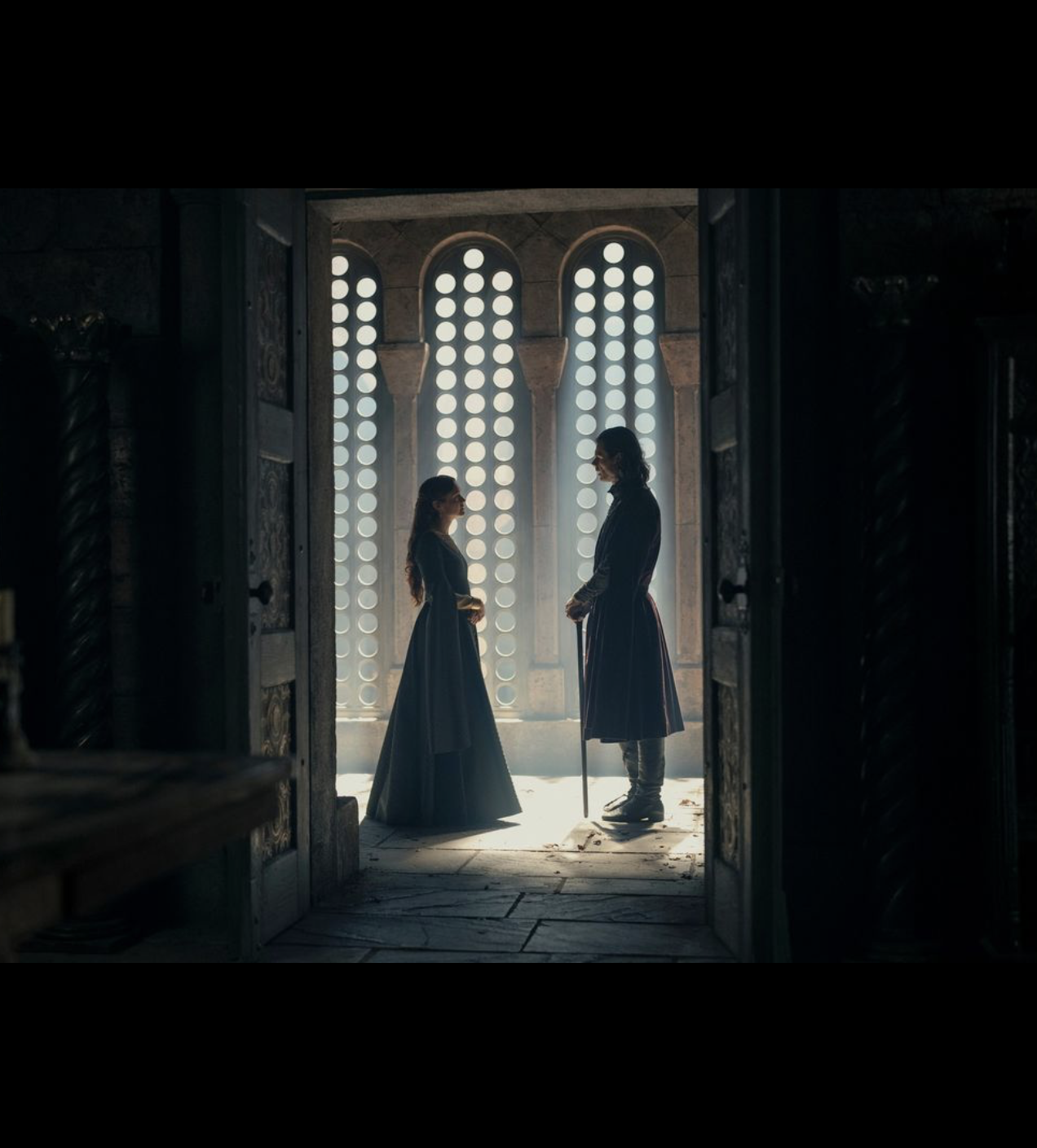
TV Writer Simone Salvatore reviews the second season of House of the Dragon finding it to be an anti-climactic and hesitant follow-on to the beloved Game of Thrones
The following review contains major spoilers for Seasons 1 & 2 of House of the Dragon
After Game of Thrones’ catastrophic final season in 2019, talking about the show was an extremely difficult exercise for many years. It’s therefore fairly unsurprising that the announcement of a Thrones prequel series, which would chronicle a war of succession known as ‘The Dance of the Dragons’ between Princess Rhaenyra Targaryen (Emma D’Arcy) and her half-brother Aegon (Tom Glynn-Carney), was met with extreme scepticism; audiences had been fooled once, they weren’t likely to be fooled again.
However, when House of the Dragon premiered in August 2022, it was not only good, it revitalised interest in the Game of Thrones brand whilst firmly establishing its own unique identity. So when Season One ended with the promise of an all-out war of dragon vs. dragon, fans were understandably eager to see the conflict unfold onscreen.
“It revitalised interest in the Game of Thrones brand
Season Two begins with both sides at a precarious standstill following a murder on Rhaenyra’s side by Aegon’s tempestuous younger brother Aemond (Ewan Mitchell). This leads into the explosive season opener ‘A Son For A Son’, in which Rhaenyra’s erratic and devious uncle-husband Daemon (Matt Smith) not-so-accidentally orders Aegon’s young son brutally slaughtered in his bed.
This episode, and its follow-up, ‘Rhaenyra The Cruel’, perfectly set the stage for the ensuing conflict, highlighting how grief and the cyclical pursuit of vengeance only leads to ruin and destruction, capped off by brilliant performances from the whole cast. Glynn-Carney in particular shines as King Aegon, turning a rather shallow and unlikeable character from Season One into a tragic, broken young man pained by the burden of a crown that was forced upon his head.
This all culminates in the fourth episode ‘The Red Dragon And The Gold’, where a three-way dragon battle between Aegon, Aemond and Rhaenyra’s former mother-in-law Rhaenys (Eve Best) delivers on all the bloody spectacle and fiery carnage that the show had promised us.
“…has some of the best dragon action seen in either this show or on Thrones
Sadly, this ramping up of tension suddenly comes to a grinding halt in the second half of the season. That’s not to say that nothing is happening; we see the fallout of the battle, the ambitious Aemond ascending to the rank of prince regent, and Rhaenyra devising a plan to recruit Targaryen bastards as dragonriders (with unsurprisingly violent results). The latter, depicted in the seventh episode, ‘The Red Sowing’, has some of the best dragon action seen in either this show or on Thrones. All of these are necessary plot beats needed to advance the story, but the season’s irritatingly lethargic pacing turns what should be a crackling build-up into a dreary slog.
By far the worst offender of this is the Harrenhal subplot, in which Daemon, during efforts to recruit allies for Rhaenyra, spends ¾ of the season in a haunted castle plagued by visions of the people he failed throughout his life. Once again, these scenes are compelling on paper, and in some respects they are thanks to Smith’s dedicated performance, but the insistence of stretching this subplot across six episodes, when it could have been accomplished in three or four at most, really started to test my patience.
“Sadly, this ramping up of tension suddenly comes to a grinding halt
This leads us to the now-infamous season finale, ‘The Queen Who Ever Was’, which rather than deliver the payoff that the show had been promising for two seasons, largely acts as set up for Season Three before ending on a montage of the various armies marching off to battle. Admittedly, season finales in Game of Thrones were never known for their high-octane action, and instead usually aimed to set up the next season and act as a cooldown following a dramatic climax in the preceding episode.
However, for the series to spend two entire seasons building towards the promise of dragon-fuelled mayhem, only to turn around at the last minute and say ‘Sorry guys, the war begins properly NEXT season!’, feels like a slap in the face. It’s as if the writers were deliberately punishing us for sticking it out to the end; we spent 8 episodes waiting for a glorious fanfare, only to be greeted with a sad whimper.
Verdict:
Though not without its moments, House of the Dragon: Season Two is a largely frustrating, often meandering follow-up consisting of an overabundance of set-up without much of an overall payoff. For a story premised on a civil war between dragon-wielding psychopaths, the show seems oddly hesitant to throw its characters into the inevitable bloodbath. As a result, it only serves to test the viewer’s patience, and given that Season Three won’t arrive until at least 2026, it seems they’ll be waiting a whole lot longer to see their patience rewarded.
Rating: 6/10
More from Redbrick TV:
Comments